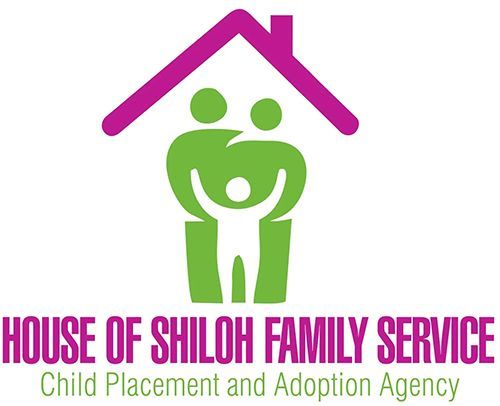Right-Time Training
Recognizing that adults learn best when the information is applicable to their own situation, the NTDC has created a component of the curriculum called Right-Time Training. Parents who are fostering and adopting need training that is easily accessible and available when they need it. Training is important when parents are first starting the journey. but ongoing learning is just as important. As families have children move into their homes, as children go through different developmental stages, and as families encounter new challenges, they will need to have a way to access information and tools. The Right-Time Training was designed to meet this need. It is not intended to replace in-person training and seminars that are offered locally; rather, it should supplement this information and provide families with a tool that enables them to access the information they want when they want it.
Please note: Each Right-Time Training video is available in standard resolution (480p) and full high definition (1080p).

Accessing Services and Supports
This theme describes how to become an advocate for children in your home to ensure they receive the services and supports that they need. Emphasis is placed on being a life-long learner, recognizing the importance of developing a support network (school, community supports, friends, medical), and learning about the types of services and supports that the child and/or the family that is fostering or adopting might find beneficial.
Building Children’s Resilience
This theme helps parents who are fostering and adopting understand concepts and definitions related to enhancing the resilience of children who have experienced trauma, separation, or loss. Protective factors are described along with strategies on how to build upon these factors to support children develop their identity, self-esteem, and skills toward self-advocacy.
Building Parental Resilience
This theme discusses the importance of self-care for parents who are fostering or adopting as well as practical ideas on how to incorporate it into their daily routines. The theme will help parents learn why maintaining their own mental, physical, emotional and spiritual well-being is so important when caring for children who have experienced trauma, separation or loss.
Common Feelings Associated with Being Adopted
This theme provides an overview of some of the common thoughts and feelings experienced by children and adolescents who have been adopted such as believing that they were responsible for removal from their birth family, internalizing the message that they should be grateful or that they should feel lucky to have been adopted, feeling guilty regarding mixed loyalty issues and experiencing a sense of loss. The theme provides strategies that parents can use to support their children and to help them address and make sense of the thoughts and feelings they may be experiencing.
Education
This theme helps parents who are fostering or adopting understand some of the educational challenges children who have experienced trauma, separation or loss may encounter. The theme highlights some of the services and supports that can be put in place for children including Individualized Education Plans (IEP) and 504 plans as well as strategies that can be used to partner and advocate with the school system to ensure their educational needs are being sufficiently addressed.
Family Dynamics
This theme provides an overview of the impact fostering or adopting can have on family dynamics including the impact on marital relationships, biological children, foster or adoptive children already living in the home and extended family members. The theme helps parents who are fostering or adopting gain insight and increased understanding of how their family may need to adjust, as well as strategies that they can use to support healthy family dynamics.
Intercountry Adoptions Medical Considerations
This theme helps prospective adoptive parents understand the purpose of pre-placement referral medical review consultations. It highlights some of the common medical conditions impacting children who have experienced institutionalization, including malnutrition, exposure to environmental toxins, and exposure to maternal substance usage. The required U.S. visa medical clinic assessment is reviewed as well as the importance of early and regular pediatric appointments with an adoption-competent medical professional.
Life Story Birth Story and Adoption Story
This theme helps adoptive parents understand the importance of having ongoing conversations with their children about their birth and adoption story. The theme discusses how empowering children with the missing pieces of their story can help them build trust in family relationships, help with healthy identity formation, and can lead to stronger connections with birth family members. In this theme, adoptive parents learn how to have on-going conversation with their children about their life story that is done in an inclusive, open fashion.
Managing Placement Transitions
This theme provides an overview of the impact transitions, both planned and unplanned, have on children who have experienced trauma, loss or separation. The theme discusses strategies parents can use to make these transitions less traumatic and disruptive. Strategies for making children feel welcomed and connected before, during, and after transitions occur are shared.
Preparing for Adulthood
This theme provides an overview of the common skills that youth will need to effectively navigate as an adult and provide strategies on how families who are fostering or adopting can prepare youth to successfully transition into adulthood. The theme highlights the variance that can exist between chronological and developmental age for children who have experienced trauma, separation and loss and how this can impact the transition to adulthood. Some of the challenges that youth may face during this transition are highlighted.
Preparing for and Managing Visitation
This theme provides an overview the importance of children maintaining visits with their family and how to check in and address concerns, questions and emotions children may encounter before and after the visits. The theme provides strategies on how to help children name and validate the range of feelings they may experience before, during and after a visit and understand the role that parents who are fostering or adopting play in these visits.
Responding to Children in Crisis
This theme highlights some of the difficulties children who have experienced trauma, separation or loss can have in regulating themselves. The theme reviews the different phases of crisis and provide parents who are fostering or adopting with strategies to proactively prevent a crisis from occurring. This theme reviews ways to keep the children safe when they are having a crisis and strategies that can help to de-escalate the situation.
Sensory Integration
This theme briefly explores how early childhood trauma and neglect may impact a child’s ability to interact successfully with their outside world – sensory integration. This theme provides parents who are fostering or adopting with the ability to identify behaviors related to sensory integration difficulties and strategies to aid a child with sensory integration challenges in the home, school, and community.
Sexual Development and Identity
This theme provides an overview of healthy sexual development and how to talk to children about healthy sexual development and relationships. The theme addresses some of the needs children who have experienced trauma, loss or separation may have in developing a positive, healthy identity relative to their sexual orientation, gender identity and expression (SOGIE) and sexuality. The theme also highlights strategies parents who are fostering or adopting can use in supporting the child’s sexual development.
Sexual Trauma
This theme provides an overview of some of the emotional needs of children who have been sexually abused. The theme highlights some of the unique challenges in parenting children who have experienced this type of abuse and safety measures to put in place to ensure all children in the home are safe. The theme also provides information on seeking effective therapy for children who have been sexually abused to minimize risk of re-victimization, minimize risk of children re-enacting abuse on other children and maximize healthy sexual development.

